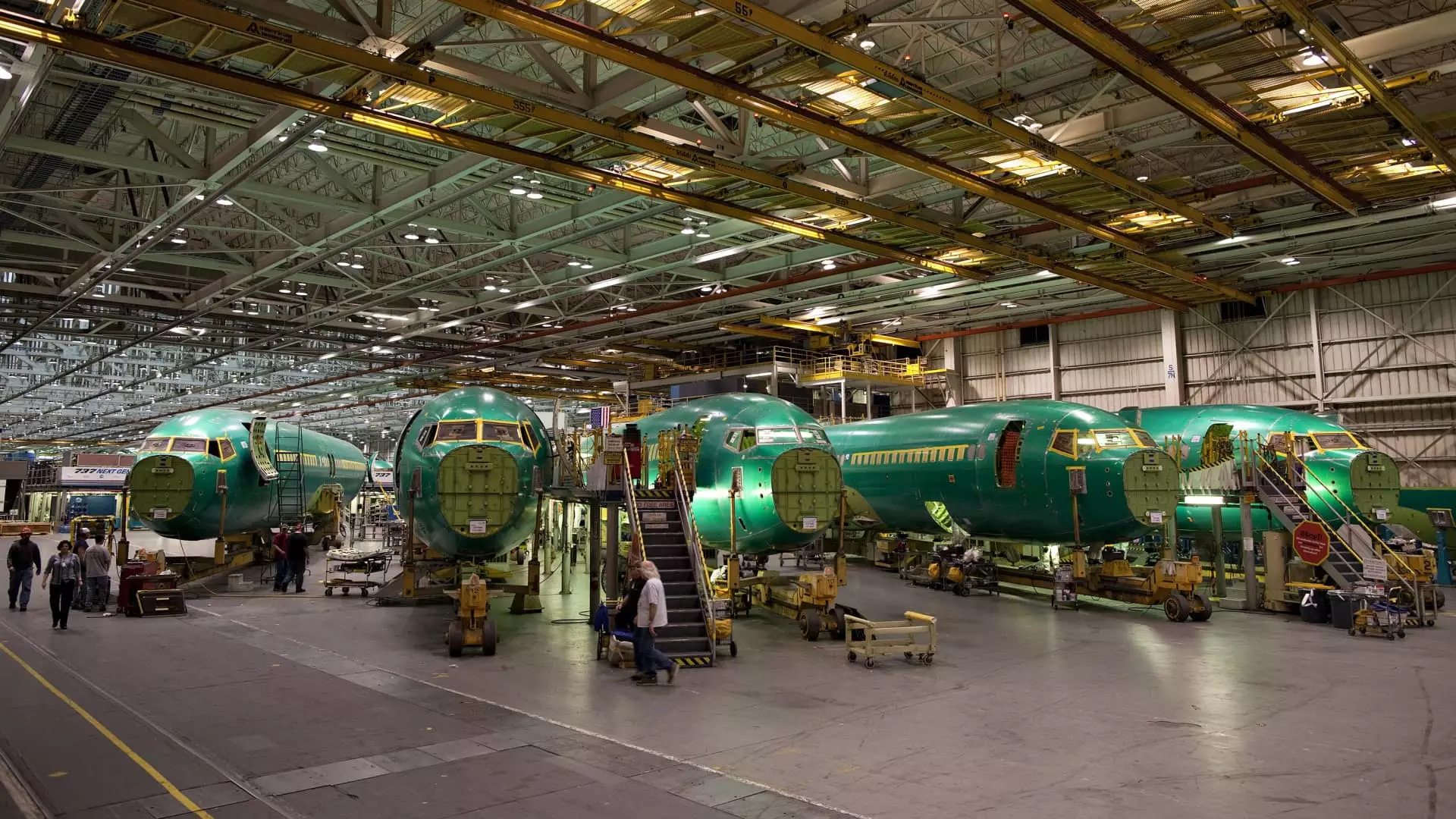Boeing made headlines on Monday with its announcement of the acquisition of Spirit AeroSystems in an all-stock deal aimed at enhancing safety and quality control within the company. The planemaker revealed that it will pay $37.25 a share in Boeing stock for Spirit, with an equity value of $4.7 billion. The total transaction value, including Spirit’s debt, amounts to $8.3 billion.
Spirit AeroSystems, based in Wichita, Kansas, is responsible for manufacturing fuselages for the 737 aircraft, along with other components for Boeing planes such as sections of the 787 Dreamliners. Boeing accounted for a significant portion of Spirit’s revenue in the previous year, approximately 70%, while a quarter came from supplying parts to Boeing’s competitor, Airbus.
Boeing’s CEO, Dave Calhoun, who is set to step down at the end of the year, expressed his optimism about the acquisition, stating that bringing Spirit in-house will thoroughly align the companies’ production systems and workforces. Calhoun emphasized the importance of this move in bolstering quality and ensuring that Boeing meets the global standards expected of it.
The acquisition deal is projected to be finalized by mid-2025 pending approval from regulators, Spirit shareholders, and the sale of Spirit’s operations dedicated to Airbus planes. Spirit’s CEO, Pat Shanahan, is being considered as a potential successor to Calhoun.
In response to the acquisition, Airbus disclosed that it has reached an accord with Spirit, where Airbus will receive $559 million in compensation to acquire manufacturing lines dedicated to Airbus planes. These include facilities in Belfast, Northern Ireland, producing wings and mid-fuselage sections for the A220 aircraft, along with A220 pylons in Wichita, Kansas, and A350 fuselage components in North Carolina.
The National Transportation Safety Board’s preliminary report highlighted serious production flaws in Boeing planes, such as missing bolts and misdrilled holes, which contributed to safety incidents like the door-plug blowout on an Alaska Airlines flight. These setbacks have led to delayed deliveries and financial losses for both Spirit and Boeing. The Federal Aviation Administration has underscored the need for Boeing to address these issues before expanding production.
Boeing’s current financial woes, including a reported cash burn of approximately $8 billion in the first half of 2024, have taken a toll on the company’s stock performance, with shares declining by more than 30% this year. To enhance quality standards, Boeing is implementing stricter acceptance criteria for fuselages to avoid errors and streamline production processes.
The acquisition of Spirit AeroSystems represents a crucial step for Boeing in its pursuit of safety and quality improvements. As the aerospace industry continues to evolve, addressing production challenges and regulatory expectations will be paramount for Boeing’s long-term success in the market.

